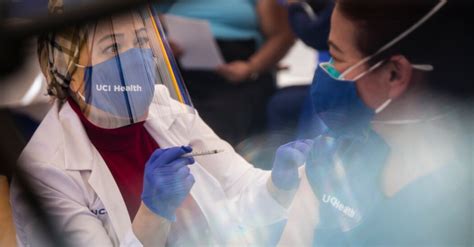Devin Watkins
President Joe Biden says he will have federal regulators make employers require workers to get vaccinated against COVID-19, or else they’ll have to pay for continuous testing of the unvaccinated. That plan raises a serious constitutional problem: The federal government lacks the power to coerce people into vaccinations.
The Biden administration seems aware of this problem. For months, the White House has said it could not do this. As the White House chief of staff retweeted, “OSHA doing this vaxx mandate as an emergency workplace safety rule is the ultimate work-around for the Federal govt to require vaccinations.”https://www.dianomi.com/smartads.epl?id=3533
The basis for the new rule requiring vaccination or testing is that unvaccinated employees present a danger to other employees. To prevent that supposed “grave danger,” Biden plans to use the Occupational Safety and Health Administration to coerce businesses into doing so.
But the injection of a vaccine is far different than requiring a mask or a hard helmet. It’s a medical procedure. It involves a person having a substance injected into their body by a trained medical professional. All medical procedures and vaccines have risks. In fact, a database maintained by the government, the Vaccine Adverse Event Reporting System, lists hundreds of thousands of problems caused by vaccines. Many of these are rare, but they happen.
The Supreme Court held in the 1989 case Cruzan v. Director, Missouri Department of Health that “a competent person has a constitutionally protected liberty interest in refusing unwanted medical treatment.”
This right isn’t absolute. If there is a sufficiently compelling government interest, this constitutional right can be overcome. Protecting the health and safety of people due to a deadly pandemic would qualify.
The specific legal problem the Biden administration faces is that in America’s system of federalism and the power to protect the health and safety of the people, traditionally called the “police power,” was explicitly not given to the federal government. The police power was retained by the states. From the start of our republic, the states didn’t trust the federal government to make these decisions compared to state politicians who are more responsive to the local communities.
In fact, states likely have the power to do what the federal government proposes. For instance, in the 1905 case Jacobson v. Massachusetts, the Supreme Court upheld a state law requiring either vaccination or paying a small fine. People could still refuse to be vaccinated, but the state could impose a monetary incentive.
The decision in Jacobson was explicitly founded upon the police power and the fact this is a power only states have, not the federal government. The court wrote, “The authority of the State to enact this statute is to be referred to what is commonly called the police power — a power which the State did not surrender [to the federal government] when becoming a member of the Union under the Constitution.”
So, on the basis of Jacobson, while a state could pass a law requiring employers to require vaccination or weekly testing, the federal government lacks this power. In contrast, OHSA’s power to regulate workplaces is based on the Constitution’s Commerce Clause, not public health and safety.
The lack of federal power over vaccinations under the Commerce Clause came up in oral arguments at the Supreme Court in the 2012 Obamacare case. Justice Stephen Breyer asked attorney Michael Carvin if the federal government could require most people in the country to get vaccinated under the Commerce Clause.
Carvin responded, “No, they couldn’t do it because Morrison.”
In the 2000 case United States v. Morrison, the Supreme Court declared the Violence Against Women Act unconstitutional because the Commerce Clause only allows the federal government to regulate things that are economic in nature. While violence against women could obviously be regulated under states’ police power, the federal government lacked this power. The Commerce Clause could not be used to get around this requirement because violence against women, although it might affect commerce, was not economic in nature.
Similarly, coercing millions of people into undergoing a medical procedure they do not want, even for their own benefit, is not economic in nature and not within the power of the Commerce Clause.
Read More From The PatriotAmerican
I am fully vaccinated and encourage everyone to get vaccinated because the benefits outweigh the risks. But, however small those risks are, the risks do exist, and in America, people have a right to decide for themselves if they wish to take those risks and consent to the medical procedure. OSHA cannot legitimately coerce them into doing so.

